
New clients, unlock 10% off all plans 🔥 at checkout with code: CEO10SPECIAL (Limited Time Offer)
New clients, unlock 10% off all plans 🔥 at checkout with code: CEO10SPECIAL (Limited Time Offer)






You’d probably be wondering, what’s the difference between a curriculum vitae and a resume?
Is it possible that they mean the same thing?
Are they two different terms that people use interchangeably?
Is it possible to submit both for a job application?
All these and many more, we would address in this article.
So, lets get in!
The answer to the above question is unequivocal NO!
The fact that curriculum vitae (CV) and a resume have a lot of things in common and almost similar in many aspects, does not rule out the fact that they are two entirely different documents.
A look at their structure and different usage will show you how distinctly different they are.
Although, both documents detail your accomplishments and credentials.
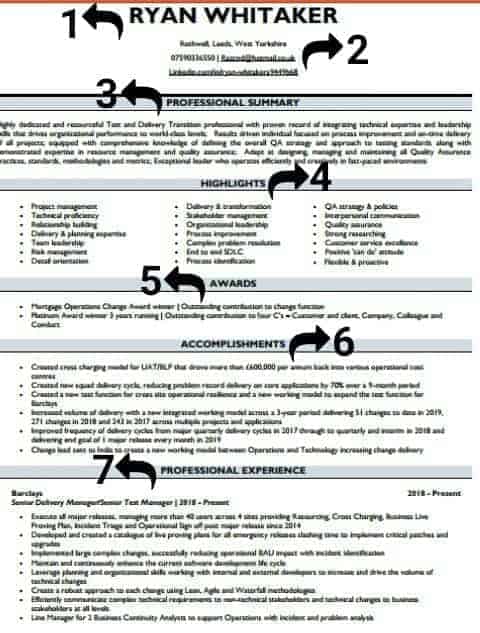
CV Template
1. Name 2. Contact Information 3. Professional Summary 4. Highlights 5. Awards 6. Accomplishments 7. Professional Experience 8. Publications 9. Conferences/Workshops Attended 10. Languages 11. References
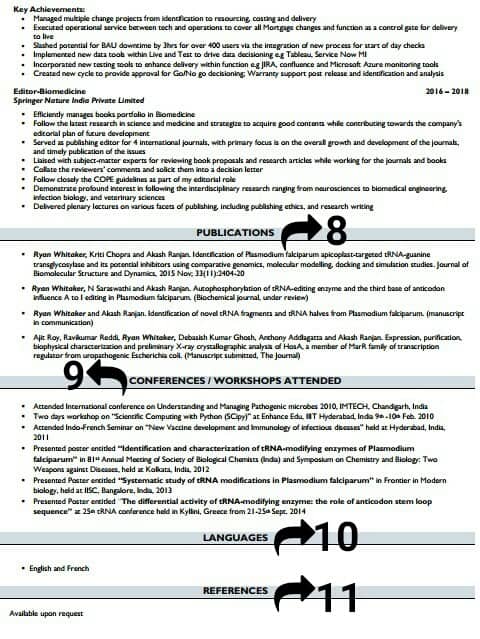
By the way of definition, CV is abbreviated from the Latin word Curriculum Vitae, which is translated to mean “the course of your life”.
A CV is a step by step detailed document describing one’s career journey, with all the necessary personal information contained therein.
It is equally considered a comprehensive description of every major task you have carried out that had a huge impact on your life.
It encompasses all the achievements you feel great about, and every publication that has your name stamped on it.
People update their CVs every time they feel they’ve accomplished something new academically or professionally.
From a new job to something they newly published, when they obtain a new certificate, etc.
The list goes on.
Also Read: Professional Resume Writing Basics and Nanny Resume Samples 2022
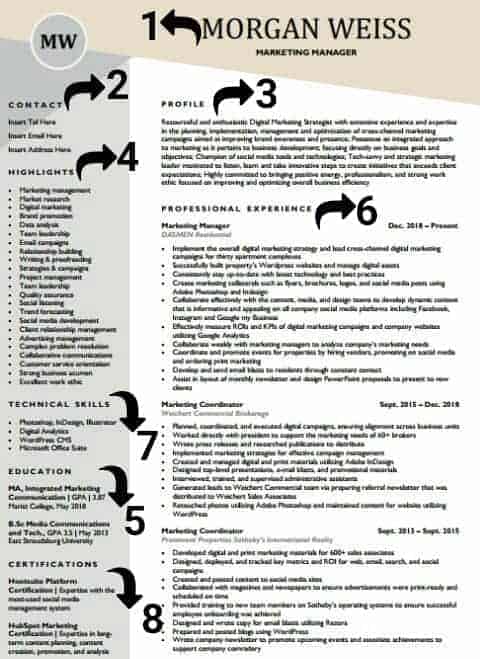
Resume Template
1. Name 2. Contact Information 3. Profile 4. Highlights 5. Education 6. Professional Experience 7. Technical Skills 8. Certification
A resume is usually short, straight-to-the-point, and detailed.
It is often created chiefly for the purpose of applying for a specific job.
In a resume, only the required information is supplied, with mentions of one’s work experience and skills that are relevant to the job they’re applying for.
A resume emphasizes the individual’s specific contributions made in previous work and also showcases how their different skills can be an added advantage for the position they are trying to fill.
A resume is usually accompanied by an attached cover letter which expresses the individual’s intention for seeking to fill the position.
The cover letter only throws more light on the skills and experience mentioned in the resume, explaining how they will help the applicant excel at the job they’re applying for.
Having established what each document means, let’s see their differences.
You might also like: The Predictive Index Test (All You Need to Know)
Here are the major differences between a CV and a resume.
To begin,
One difference between a résumé and a CV lies in each document’s length and the ability of the individual to customize each to suit their purpose per time.
Unlike a CV, résumés are kept short and concise.
In most cases, employers demand something not more than 1 page.
We however advice you keep your resume within the 2 page max limit if:
You have garnered many years of working experience, let’s say 15 years or more and strongly believe that the extra information you’ll mention will add extra value to your application.
We recommend this because employers may not have all that time to go through a resume that is more than two pages in length.
So for a resume, endeavor to keep it as concise as possible, ideally only one to two pages.
However, a CV can run several pages in length.
This is because a CV by default is designed to contain more information than a resume.
Another key difference is:
The two documents differ in usage depending on the individual’s work experience and career type.
Often times, CVs are mostly used by individuals in the academic field.
For these set of individuals, CVs are usually required if they are applying for a doctoral or masters program, or if they are applying to work as a professor or researcher at an academic institution.
More differences?
Resumes are flexible to customize than CVs.
You can only update the information contained in your CV and continually add new information as you progress in your professional career.
Unlike a CV, a resume is often tailored to outline specific skills or experience relevant to your target position or career.
CVs are static but resumes are not.
Furthermore, regional factors contribute greatly to their differences.
It is important to note that geographical factors can determine the usage of either documents.
It also determines the https://simpliolabs.com/ content and structure of each document.
This insight is important, considering the fact that curriculum vitae in one country or region may mean something different in another country, say the U.S. for instance.
In any other region, a curriculum vitae may be a one-page document that looks almost like a resume.
In the U.S., a CV is regarded as a multiple page document detailing the full career history of an individual.
It’s like a comprehensive documentary of their career life and achievements.
Again, resumes detail relevant job experience, specifying metric-driven achievements, and how this milestone has equipped them for the one they are applying for.
A resume is carefully customized to fit the individual’s needs on each job application they apply for.
While a resume focuses more on their skillset and abilities,, a curriculum vitae reflects a full history of an individual’s career and achievements.
A curriculum vitae and a resume are not so different.
Both documents describe what an individual has done and how that has equipped them for the current job they are applying for.
There are also many similar ways to prepare each of these documents.
Our experts advice that it is very wrong for applicants to submit a resume that is more responsibility-tailored than achievements.
If for instance, as a delivery man your responsibilities were to pick up deliveries, explain how long it took you to pick up those groceries and mails, state how well it went, and what role your job played in the overall success of your organization.
Both curriculum vitae and resume reflect an individual’s communication and writing proficiency.
Hence, the need to rid them of grammatical errors.
Neither of them should include lies that you believe will boost your career prospects and chances of securing the job.
Outside the United States, the word resume is generally regarded as a CV.
This has led to some international confusion, which we hope to clear up in this section.
The United Kingdom and Europe
In most European countries, including the United Kingdom and Ireland, “curriculum vitae” refers to the short, one-page document you write for a job application.
Resume is a rare term but is still understood by most hiring managers.
CVs for academic positions are also called CVs in Europe.
However, you might hear them called academic CVs since it makes the meaning clearer.
Canada
Canadian businesses uses resume in the same way as American companies.
This might be likely due to Canada’s proximity to the US.
Similarly, a CV is used to apply for academic positions.
Australia
In Australia, resumes and CVs are both used to apply for jobs.
Resumes are one page documents, summarizing the main highlights of your career, while CVs are around two to three pages outlining all of your professional experience.
New Zealand
Similar to Australia, a resume is usually one page and a curriculum vitae is two to three pages long in New Zealand.
Both are used to apply for jobs.
You might need to create both since employers will either ask for one or the other.
If you have doubts as to whether an employer requires a resume or CV for that job you’re applying, then we’d advice you ask yourself the following questions in order to determine the appropriate document to use:
What career type are you applying for?
If you’re putting in an application for a job in academia, especially as a lecturer, teacher, teacher assistant, or researcher at a college or university, then you should know that what you need is a CV.
Some of these higher institutions of learning give stipulated guidelines for what to include in your CV, so ensure you check the school’s website for all the necessary information before you apply.
Where is the organization located?
Where the organization or company is located may determine whether you should submit a CV or a resume.
Depending on the location or region, a CV may be a standard resume or the highly detailed document that highlights all your career milestone and achievements.
So, to determine which is appropriate to send, first consider the career/job type and location.
If it’s for a job in academia or for a research position, the organization is likely to ask for a traditional CV.
However, if you’re still in doubt about which to send, contact the recruiter or hiring manager and seek clarifications.
Finally, if you have a CV and do not have a résumé, it is important to put one together.
CVs are generally more detailed with the constant addition of new information, so it is much easier to create a résumé from a CV, considering that it’s usually shorter and more concise.
It is important to have the right document for a job application and to keep both documents at hand.
This will ensure topnotch preparedness beforehand, no matter which of them the employers request.
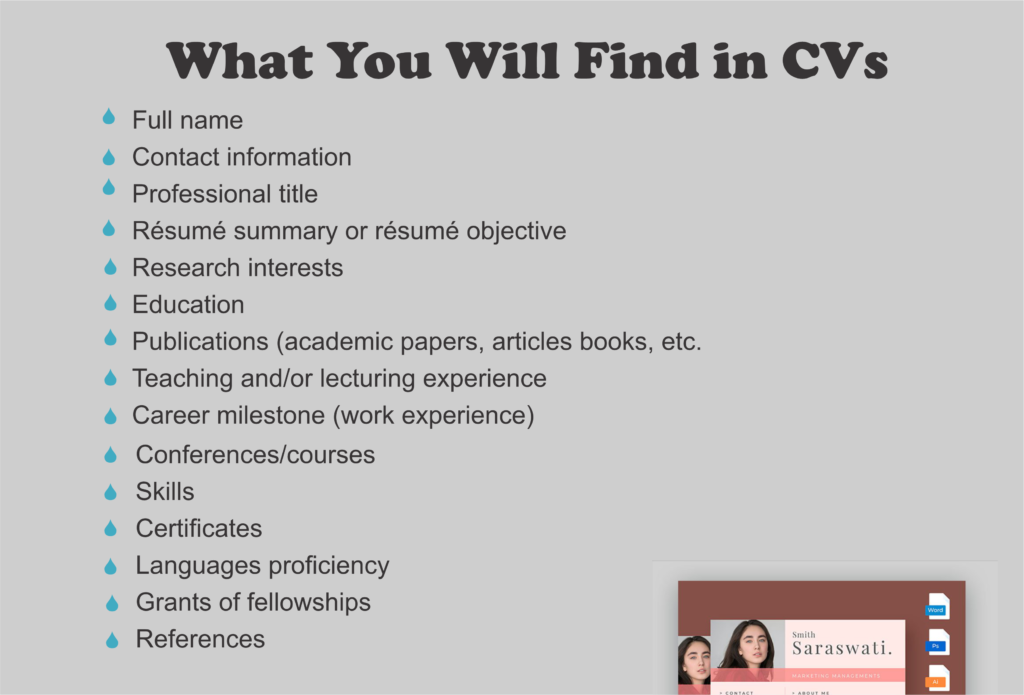
These are typically what you’d find in curriculum vitae.
Now, let’s see the content and structure for resumes may look like:
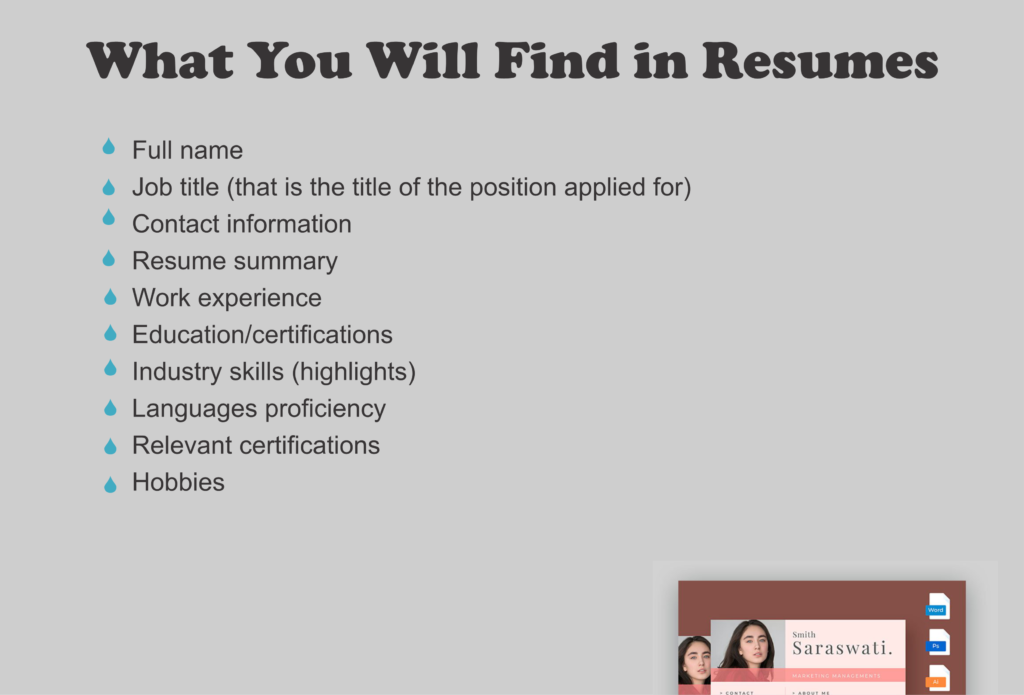
These are the information usually contained in resumes.
Now, let’s do a quick recap of all that we discussed.
I hope this article helped clear up the differences between CVs and resumes.
Perhaps you are unsure about some points, leave a comment. I’ll answer all your CV vs. resume questions!
Share
Further Reading
*The names and logos of the companies referred to in this page are all trademarks of their respective holders. Unless specifically stated otherwise, such references are not intended to imply any affiliation or association with CEOMichaelHR.
Land interviews 3x faster while submitting fewer resumes
Copyright © 2025, ceomichaelhr.com.
All rights reserved.
Land interviews 3x faster while submitting fewer resumes
Copyright © 2025, ceomichaelhr.com.
All rights reserved.

Learn the same techniques our expert resume writers have used to get thousands of clients closer to their next job
Unlock expert resume tips, start landing multiple interviews!

Stay connected to receive powerful career insights, updates, and inspiration that’ll help you hit your career goals.